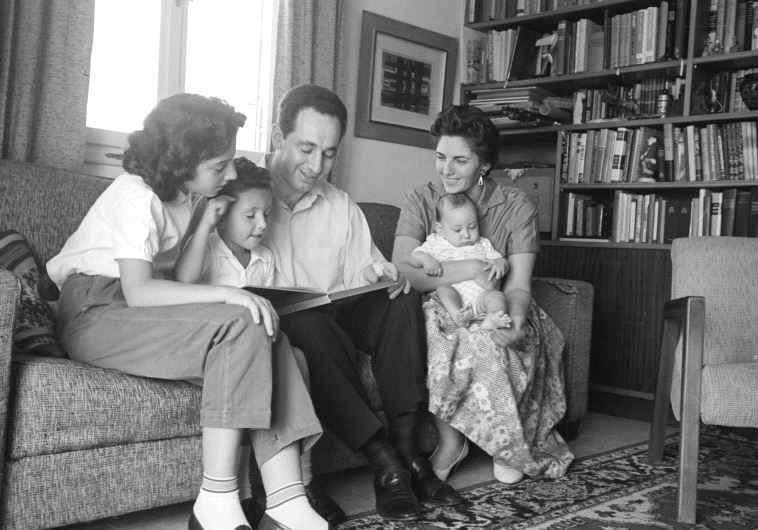The father and friend that was Shimon Peres
“To me he was a young man who used his creative skills to get us to eat. Who cut sandwiches into triangles and diamonds," recalls his daughter Tzvika.
 Shimon and Sonia Peres with their three children on November 15, 1958(photo credit: AVRAHAM VERED / IDF AND DEFENSE MINISTRY ARCHIVES)
Shimon and Sonia Peres with their three children on November 15, 1958(photo credit: AVRAHAM VERED / IDF AND DEFENSE MINISTRY ARCHIVES)